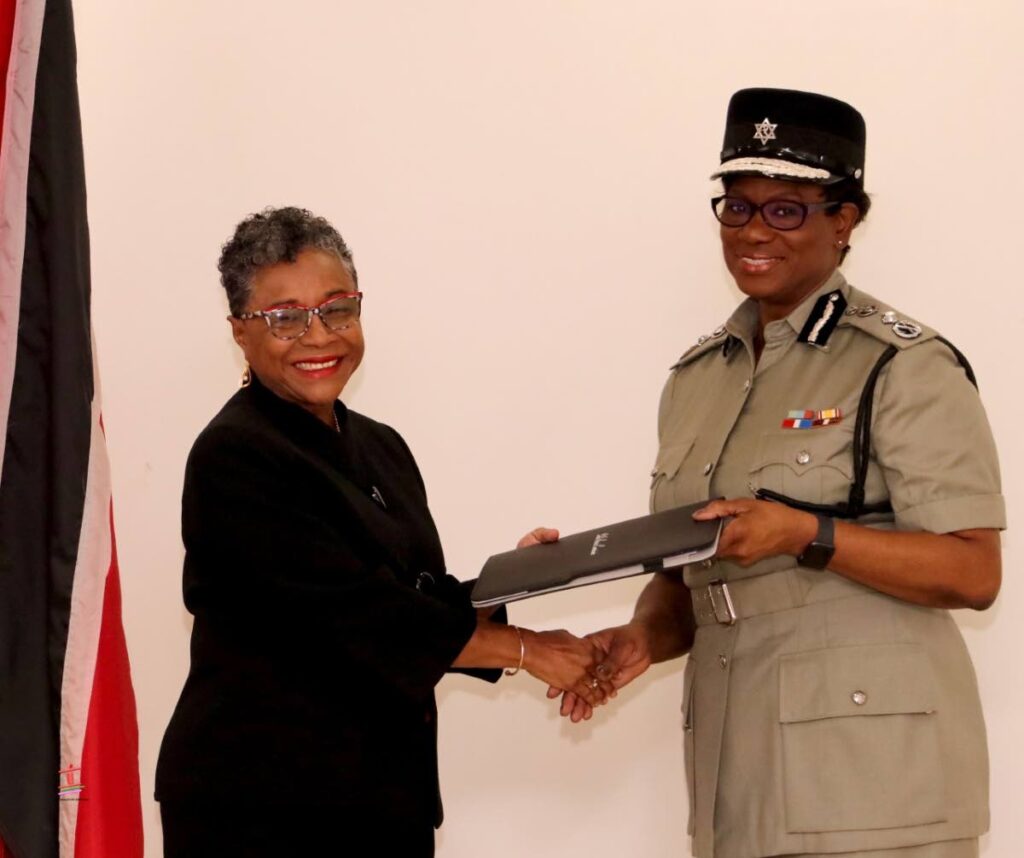A woman’s work is never done

Trinidad and Tobago has made another landmark step by appointing our first female Commissioner of Police (CoP).
History was made last week too for another less edifying reason. Erla Harewood-Christopher became the first Police Service Commission nominee for CoP who in recent times has not been vilified in Parliament, although the Opposition did query the suitability of her experience and her closeness to retirement age. But the issues were not substantial enough to hinder a unanimous decision to appoint the acting CoP and former acting deputy CoP to the position.
Christopher was also spared the awful imputations heaped upon the head of our recently appointed first female president, Christine Kangaloo, who rose from the political ranks and therefore seemed to be fair game. Our new CoP might have expected some resistance and bad talk, since we are averaging two murders a day so far this year, but the public is so grateful for rare political harmony that they, too, are supporting her. The spiralling homicide rate presents a crisis. Let’s see if she can capitalise on our goodwill and that of politicians on both sides of the political divide to steer the country out of the criminal malaise we have worked ourselves into.
CoP Christopher has a lot of experience in human resource management, and sorting out one’s own house is always the best place to start, especially since our police service desperately needs to be licked into shape.
Several officers are currently before the courts, one of them for assaulting a lower-ranking officer. If he could exercise physical power over a colleague then who are we, the public? We know the police, in general, do not understand that it is their job to serve the people. They clearly believe that they have power over us in all situations. They forget that we pay their wages and that they exist because of the authority we give them through the administration of the law undertaken by those whose salaries are also paid by us, the people.
Commissioner Christopher needs to reinforce the simple fact that officers are not above the law. They should not break speed limits, park illegally while buying lunch, wrongfully use sirens to escape traffic jams, treat law-abiding individuals like criminals, beat people for no good reason, shoot to kill when maiming would suffice, and, worse, involve themselves in criminal activity.
Christopher knows all of this, but can she, will she, target those obvious areas for improvement that negatively affect public trust in and respect for the police? Will she improve the atrocious rate of detection and modernise police practice in stations? Can she improve the preparedness of her officers, earn their respect, and make them more accountable?
Bad policing produces a more violent society – the two are not unrelated, just as the cruel inefficiencies of our judicial system also contribute to the worsening state of crime.

Breaking the glass ceiling is only part of the journey; doing the job as well as, at least, and even better than former male CoPs, is the big task, since women, like all disadvantaged groups, must excel to be regarded as even average compared to their male counterparts.
In Britain, the first woman to head the legendary Scotland Yard, Cressida Dick, was unable to undo the rot that had set in at the Metropolitan Police, and resigned from office last February, after four years as commissioner.
Just like the various police services in the US, where killing civilians is a sport, and, I am sure, elsewhere in the world, policing is always in a potential state of deteriorating standards. The first programme I worked on as a junior BBC journalist decades ago was Trouble with the Law, which addressed the culture of thuggery and racism in the British police.
We are not alone, but we do have particular grave matters to concern us, such as the illegal use and possession of guns, narcotics trading, and chronic white-collar crime.
Our CoP’s task is huge and we wish her well. It would be good to see a woman make a real difference and not fall flat on her face.
On another optimistic note, in this column I have argued repeatedly that involving the people in how the country is run would be to the benefit of everyone and called for meaningful local government reform. I was impressed, therefore, by the words of Dr Rowley last week when he explained what local government meant and how it will be funded from local taxation and central funding to return the power to make local decisions, which benefit and serve local people in each community, to those in charge of corporations.
I have heard politicians state it clearly as an intention while trying to win an election and then renege on their promise. But Dr Rowley did appoint a proud minister to spearhead local government reform, so I am inclined to think that maybe this time we may be inching nearer to a sensible way of running TT. It’s a source of cheer as we head into ole-mas time.


Comments
"A woman’s work is never done"